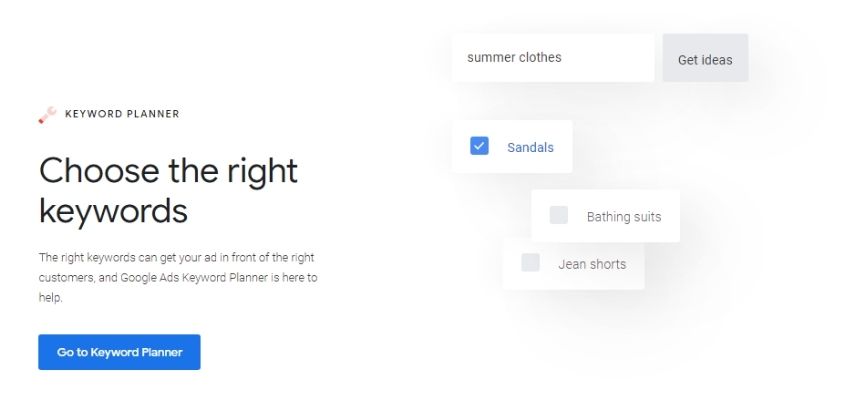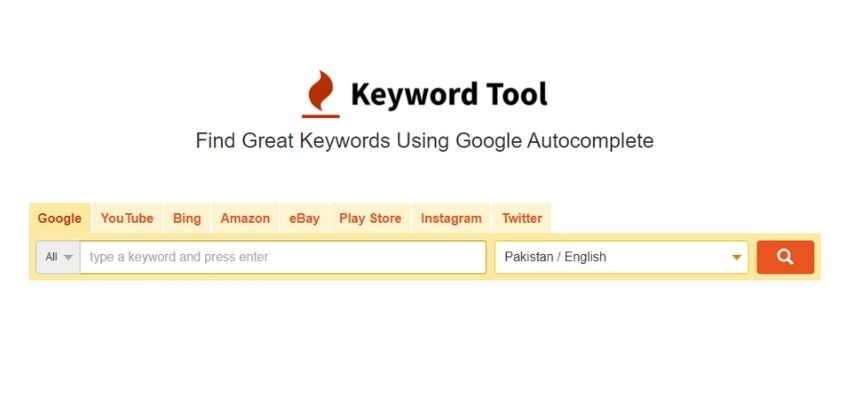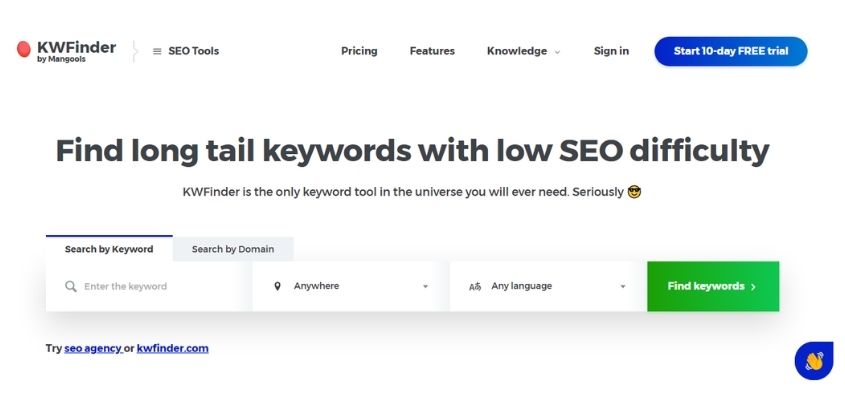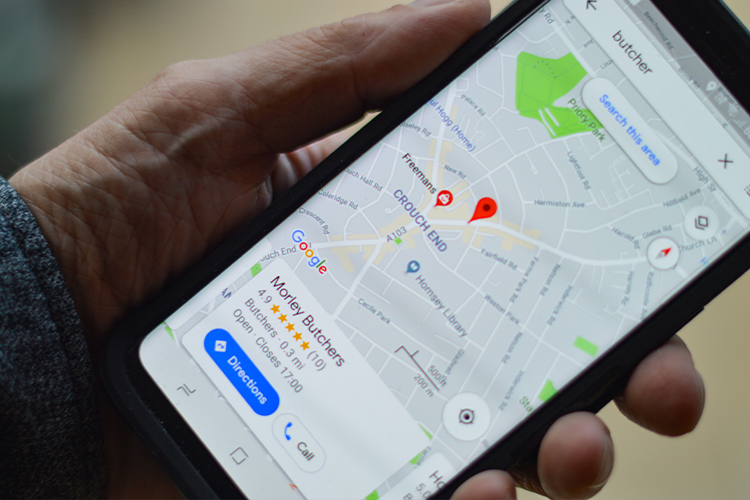Do you want to improve your local search ranking? Here’s how to find and use keywords to help you rank higher in local searches.
There are a variety of tactics that can help you rank higher for competitive keywords connected to your product or sector. Local SEO, on the other hand, is a frequently ignored factor.
What Is Local SEO and How Does It Work?
Local SEO is the process of attempting to increase a website’s ranks in both Google My Business and standard organic results for queries with a local intent.
When consumers hear the term “local SEO,” they frequently think of “Google My Business.” This is a narrow-minded approach to local SEO when localized organic results can cover a lot more ground.
Google My Business is an important part of a local search strategy that must be properly optimized. It is not, however, the be-all and end-all of local search.
Local search results include both local/map pack and localized search results.
Local searches are how customers locate businesses.
Local searches may have smaller search volumes, but it’s all about intent and bringing in visitors that’s ready to buy.
In fact, 76 percent of consumers who use their cellphones to find a nearby business visit it within a day, and 28 percent of these searches result in a purchase.
Local Keyword Research
You must first determine which search terms are assisting people in finding your company.
Once you know the keywords you’re ranking for, optimizing your website will be considerably easier. You can then concentrate your efforts on additional keywords that are important.

If your flower shop, for example, is already performing well for [flower shop, Texas], you can focus on other search phrases. You can focus on ranking for terms such as [Texas flower store] or [top flower shop in Texas].
You may reach out to more potential clients by increasing your search results for other similar phrases as well.
Did you know that 80% of people use a search engine to look for local information?
People use search engines to identify local businesses that provide the items or services they require. To rank in these search results, you’ll need to incorporate local keywords into your website.
Local keywords are terms that have a specific geographic place and produce results relating to that location. These keywords are important in optimizing your local search engine optimization (SEO) strategy since they assist lead visitors in your neighborhood to your business.
Local SEO Examples: 5 Examples Of Local SEO Optimization
What to Research
You may utilize tools like Google’s Keyword Planner to get search volume data for your locality as you conduct your local keyword research.
Don’t limit yourself to your current location.
Include close, separate locales in your search.
For example, you can broaden your search beyond [America’s most exclusive Chinese restaurant] to include [America’s most delicious food] and [America’s best culinary tours].
Such data on search volume for certain areas may not appear to be significant. However, such data can bring a respectable volume of visitors with strong buy intent when seen as a whole.
Just make sure you don’t get too far away from your original spot.
You should also look into what actions your competitors are taking to improve their local search rankings. Use Google’s Keyword Planner to enter the URL of their contact page.
You may find the keywords that Google is most likely to associate with their business this way. To acquire a competitive advantage, focus on these keywords.
What Are the Signs That You Need Local SEO?
Local SEO is required if your consumer base is predominantly based in the same city or metropolitan area as your business (i.e., a local business).
Local SEO is required if you have a physical location (or multiple locations).
If you’re not sure whether you need local SEO, an easy approach to find out is to conduct some searches for terms you believe your customers will use to find your products and/or services.
You’ll need local SEO if you’re conducting searches and notice that the results are more localized based on where you’re looking from.
What is the significance of local keyword research?
You need to know what consumers enter into search engines like Google when seeking for your company’s products or services, so local keyword research is crucial.
That may seem self-evident, yet it’s the crux of the issue.
The majority of people simply guess at these keywords, assuming they know how people search for their brand. As a result, they frequently target the wrong keywords or ignore phrases that could have a favorable impact on their bottom line.
If you’re a plumber in London, for example, you’ve presumably already determined that you want to rank for terms like “plumber in London.” But what about the rest of your services?
Choosing Keywords to Use in Your Local Area
Google has been focusing on making search results more localized.
A few years ago, someone searching for the same thing in Arizona and California would get the same results from search engines.
Since then, Google has prioritized local results when prioritizing search results. It gives preference to businesses with a local listing near the person conducting the search.
They don’t tailor their search results solely on the basis of location. They also take into account your particular tastes and decisions.
Brainstorm your key phrases
Local SEO isn’t rocket science, but it’s also something that many businesses miss. Most businesses will have little trouble determining the types of major keywords and phrases they wish to rank for. For example, if you’re a branding company in London (like Fabrik), customers will most likely search for your services using terms like: London clothing services
- Branding services in London.
- Best clothing store nearby in London
- Most trendy and fashionable clothes in London
At the end of the day, every search begins with a combination of the service you provide and the place you’re in.
Start by listing all of your service areas and physical locations (cities, towns, and nations) that you serve if you want to learn how to do keyword research for local businesses. After that, all you have to do is combine the two lists to make your terms.
Look for ideas anywhere you can and get inspiration
Your work isn’t finished once you’ve finished brainstorming. It’s also a good idea to look for inspiration from other places, just in case you find something you didn’t expect. Consider going to Quora or Reddit and researching the questions your customers are asking about your product or sector.
A simple question like “How to design a logo” can quickly morph into “How to design a logo in London.” You can also browse for ideas in Craigslist’s services section. When you search for a “Marketer” in London, you will be presented with a slew of “Modifier” terms such as “Best” marketer in London or “Affordable” London marketer, which you can use as inspiration.
Don’t overlook the importance of Google autocomplete in your local SEO keyword research. To utilize this strategy, simply type in the primary phrases you want to rank for in Google, such as “best clothing store in London.”
Autocomplete will give you some suggestions right immediately, and you can scroll down to the bottom of the page to see the related searches.
Competitors analysis: Stay one step ahead of competitors
Last but not least, when developing your local SEO keyword research strategy, you must discover how to spy on your competitors. A simple competition analysis will reveal all of the local terms and phrases that businesses similar to yours are already ranking for.
There’s a strong possibility you’ll come across at least a few terms that you forgot to try to earn. Furthermore, there are numerous competitor analysis tools available in the SEO sector that can assist you in your investigation. You can compare your keywords to those of numerous competitors at once, potentially uncovering hundreds of new phrases to pursue. Simple.
Tips on how to improve your keyword research technique for local SEO
So, you’ve mastered the fundamentals of local SEO keyword research. It’s now time to fine-tune your methods.
When choosing local search phrases, keep in mind that you want to use terms that have the biggest potential search traffic while still being relevant to your business and what you want to achieve. This should assist you in attracting more traffic and maintaining your Google reputation.
The Google “Proximity to Sender” notion is something to bear in mind. When determining where organic terms should rank, Google now considers the searcher’s geographical location. Concentrating your efforts on towns and cities rather than entire countries could help you locate a bigger number of specialized buyers.
Once you’ve compiled a list of terms based on your local keyword research, you’ll need to:
Keep updating your contact information: Make sure your website has a “Contact” page with pertinent information about your local company. Your phone number, address, and any other pertinent information should be included on this page.
Including your contact information in the bottom of your website, where it will be seen across the site, will also help you build a stronger local presence.
On your website, use the keywords you found in your local keyword research: Ensure that your website has all of the local search terms for which you want to rank in relevant locations. Some of the search terms you wish to rank for might be more suited to blog posts, while others might be better suited to service pages, squeeze pages, or even your “About Us” page.
Create locally related blog content: Make sure your visitors are reminded of your local environment with locally themed content. For example, you may write about “Logo design suggestions in London” and “London website design themes.”
Work on your citations in your area: Any internet mention to your firm is referred to as a local citation. In order for a citation to be considered local, it must also specify where you work in addition to your company name. Someone can refer to Fabrik as a “Local branding agency in London,” for example. You can follow your citations across the web and ensure that you’re managing those phrases effectively using the right local SEO keyword research tools.
Obtain backlinks: Backlinks are an important part of any SEO plan. Request to feature on their blog as a guest poster to gain backlinks from local websites in your area. You can also generate information that other businesses would find useful and encourage them to link to it on appropriate pages around their website.
Most importantly, once you’ve performed your local keyword research, make sure to incorporate it into the design and enhancement of your Google My Business Page. A well-optimized local SEO strategy must include a Google My Business Page.
Best Local Keyword Research Tools That You Can Use
You’ll enhance your search engine rankings, appear on local finder, Google Maps, and more if you make sure to use your local keywords on these various tools
Keep in mind that users who read your listing on Google My Business can use the “Suggest an Edit” option to suggest revisions or changes to your information. This is why it’s critical to keep a watch on your listing and erase any inaccurate or misleading content.
Additionally, we can assist you with marketing and distinctiveness.
Here are a few of the greatest local keyword research tools you should check out.
Google Keyword Planner

For good reason, the Google Keyword Planner is one of the most popular SEO tools on the market. It’s not only free and simple to use, but it also provides plenty of information to get you started if you’re not sure what you should be ranking for. The Google Keyword Planner was created with paid PPC advertisements in mind, but you can use it to explore organic keywords as well. All you have to do is enter your product or service, as well as the landing page and product c of your competitors.
Keyword Tool.io

Because it leverages things like Google Autocomplete — the tool we mentioned to get you started above – Keyword Tool is an excellent place to start your local keyword research. The Keyword Tool will be useful to anyone who uses the Google Keyword Planner for keyword research. Keep in mind that Keyword Planner is geared toward advertising, whereas Keyword Tool is more likely to examine organic search and long-form terms.
The best part of Keyword Tool is that the first 750+ keyword ideas are free. If you want a more in-depth study of your keywords and more access to data like search volume, CPC, and competition levels, you may upgrade to the premium version.
KWFinder

Another extremely popular tool for local keyword research is KWFinder. The search volume, trends, CPC, and difficulty levels in your results are all displayed in this solution’s great UI. The main goal of this program, as you may have guessed, is to assist you in finding keywords. You can, however, evaluate the terms that you come across. When you click on a certain keyword, it will provide information about its current difficulty level.
SEMRush
SEMRush is a one-stop-shop for search engine optimization and is one of the most popular local SEO keyword research tool solutions on the market. The SEMRush website has a wealth of information and tools, including PPC and SEO research tools. You can research local keywords that will do well on both Bing and Google, as well as volumes, trends, and ad copy for search results.

SEMRush also provides information on relevant keywords and phrases that may be useful in your strategy. These related terms include suggested modifications and synonyms that may be useful in expanding your local presence.
Using local keywords to their full potential
While local keyword research isn’t always the first thing that comes to mind for businesses looking to improve their internet rankings, it could be important to your success. You may increase your chances of bringing more visitors to your website who are ready to convert by focusing on low-volume but high-intent local phrases for your keywords.
When you combine your local SEO keyword research process with local brand citations, backlinks, and a comprehensive branding plan, you’ll have everything you need to establish a powerful and profitable online presence for your business.
Do you require additional assistance? No issue; simply contact Artimization for expert advice on how to alter your online presence and put your local company on the map!
Omer Nadeem
Co-Founder of artimization who is passionate about bringing colour, clarity and budget-ability to businesses' experience of IT.
 Make Custom Package
Make Custom Package



No Comments